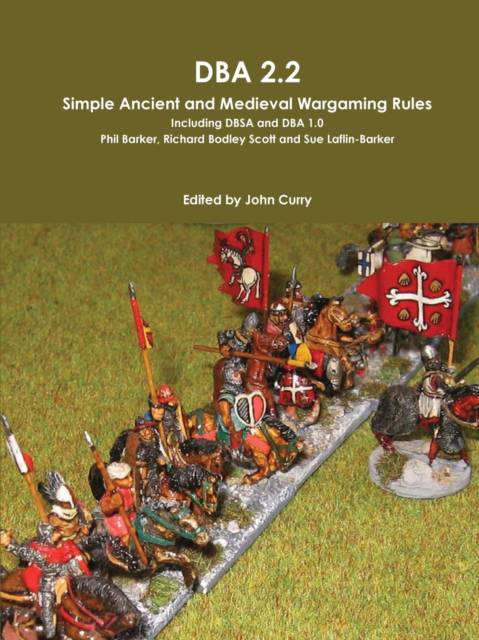
- Afhalen na 1 uur in een winkel met voorraad
- Gratis thuislevering in België vanaf € 30
- Ruim aanbod met 7 miljoen producten
- Afhalen na 1 uur in een winkel met voorraad
- Gratis thuislevering in België vanaf € 30
- Ruim aanbod met 7 miljoen producten
Zoeken
DBA 2.2 Simple Ancient and Medieval Wargaming Rules Including Dbsa and DBA 1.0
John Curry, Phil Barker, Richard Bodley Scott
Paperback | Engels
€ 32,95
+ 65 punten
Omschrijving
The aim of the rules was to provide the simplest possible set of wargaming rules that retained the feel and generalship of ancient and medieval warfare. The rules were about command decisions not the detail of combat. The average player would have memorized the rules by half way through their first battle, but tactical skill, especially with the use of light troops, took longer. Battles typically lasted less than an hour, allowing multiple games to be played in a single day. The DBA rules include the basic battle rules, campaign rules, suggested mini-campaigns, over three hundred army lists, rules for larger armies and six player campaigns. The original rules are supported by an introduction by Phil Barker and chapters on: Reflecting on the development of DBA. An introduction to tactics using DBA by Martin Smith. Applying DBA to historical battles, Recreating the Battle of Zama in 202 BC using DBA by Phil Steele. DBSA and DBA 1.0 Also included are all four of the original army lists
Specificaties
Betrokkenen
- Auteur(s):
- Uitgeverij:
Inhoud
- Aantal bladzijden:
- 122
- Taal:
- Engels
Eigenschappen
- Productcode (EAN):
- 9781291090185
- Verschijningsdatum:
- 22/03/2013
- Uitvoering:
- Paperback
- Formaat:
- Trade paperback (VS)
- Afmetingen:
- 210 mm x 279 mm
- Gewicht:
- 290 g

Alleen bij Standaard Boekhandel
+ 65 punten op je klantenkaart van Standaard Boekhandel
Beoordelingen
We publiceren alleen reviews die voldoen aan de voorwaarden voor reviews. Bekijk onze voorwaarden voor reviews.











